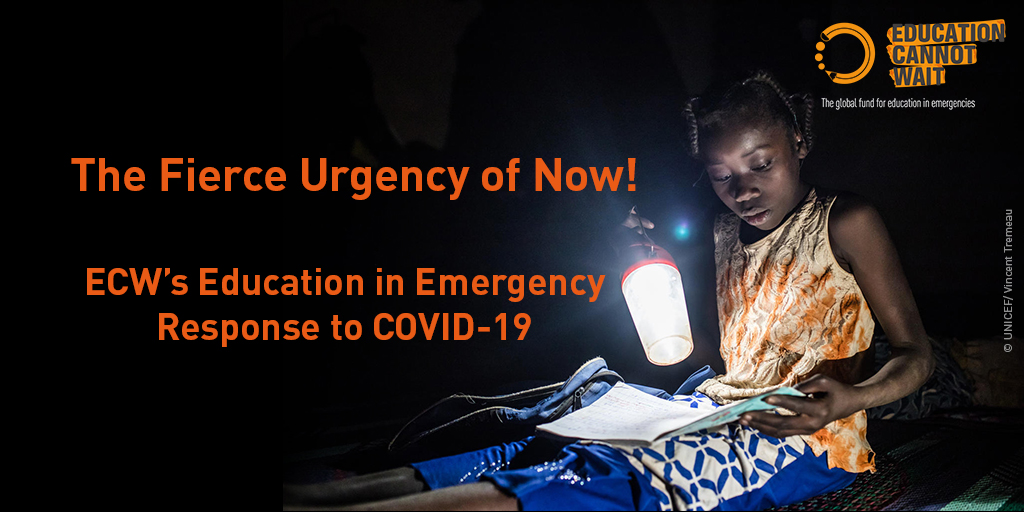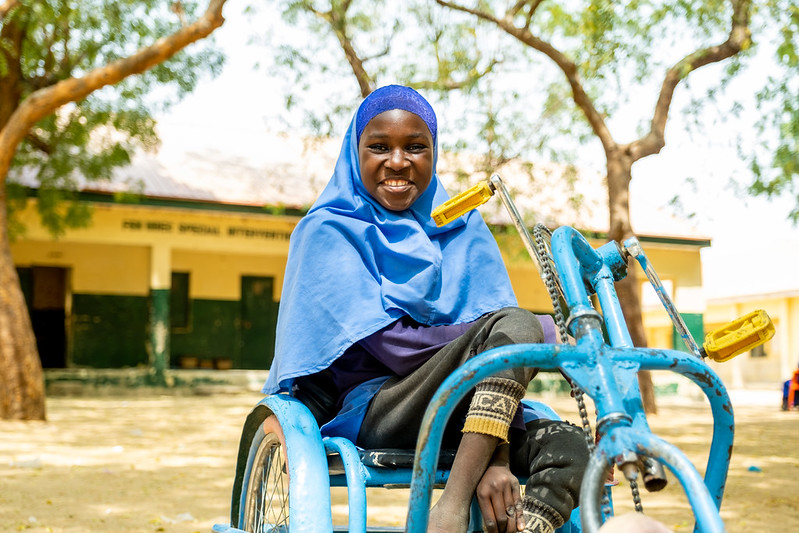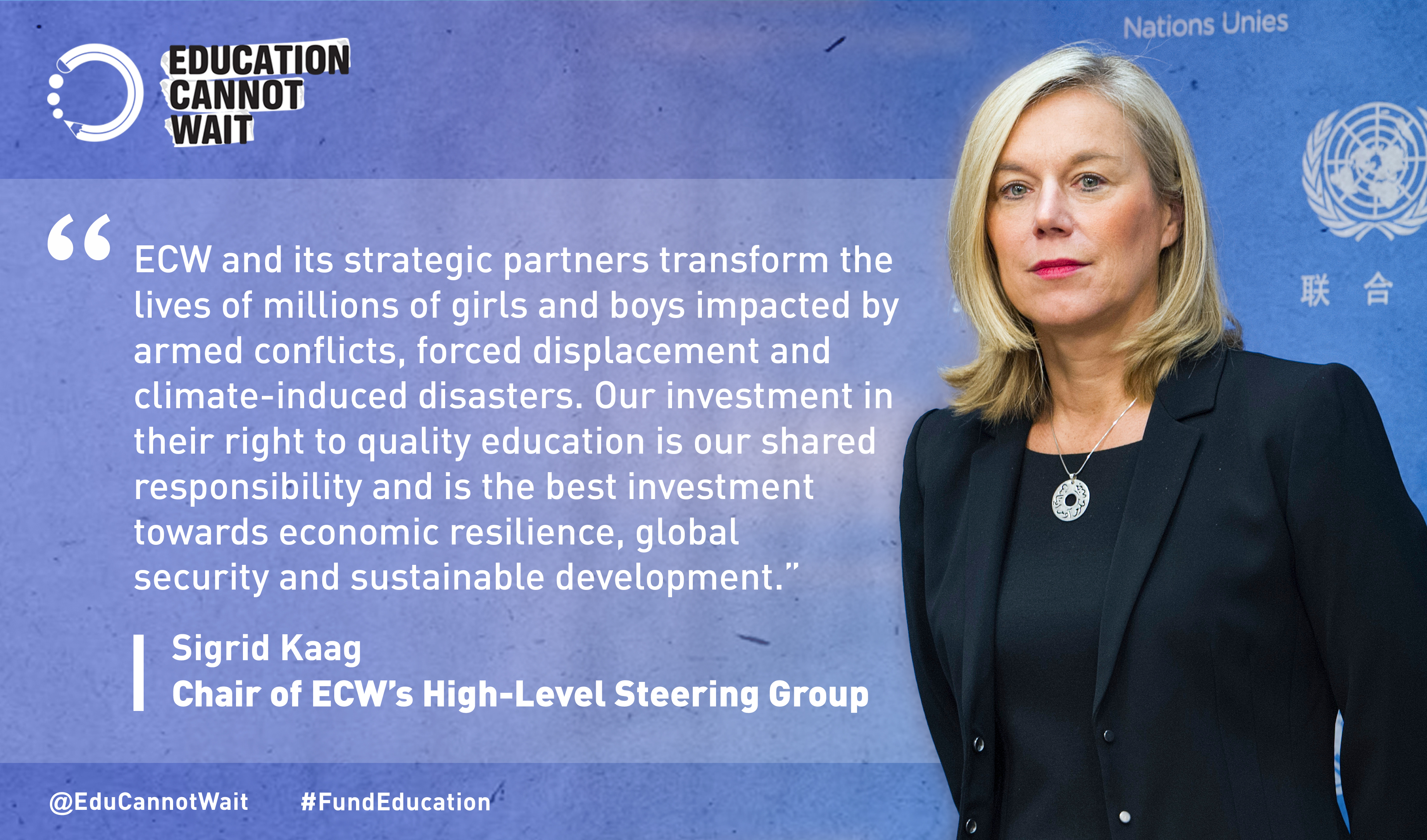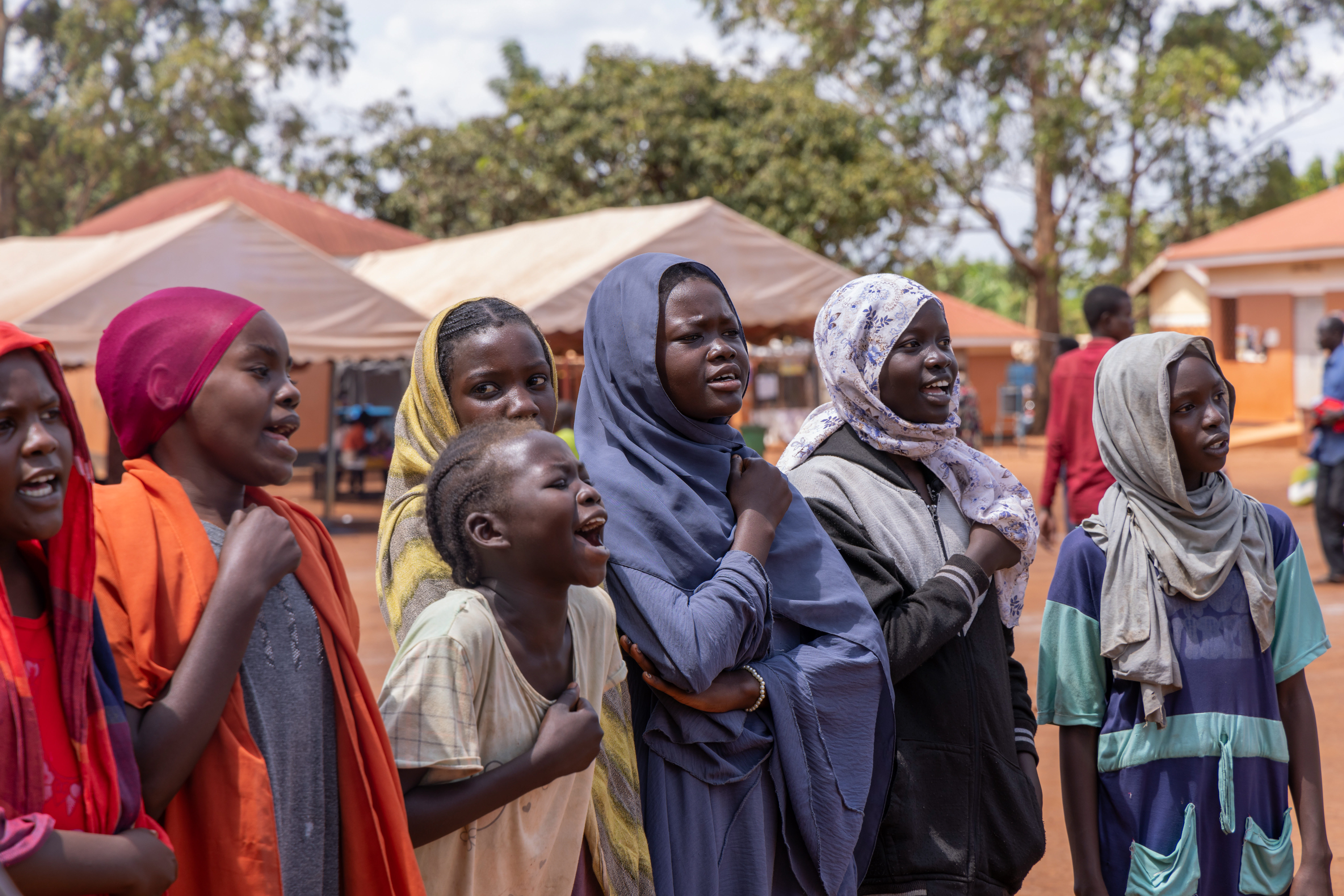Education Cannot Wait Releases Us$23 Million in 24 Hours in Emergency Grants to the Covid-19 Humanitarian Response

IN ADDITION TO $15 MILLION YESTERDAY, TODAY’S US$8 MILLION ALLOCATION DEPLOYS EDUCATION IN EMERGENCY SERVICES TO CHILDREN AND YOUTH IN A TOTAL OF 26 CRISIS-AFFECTED COUNTRIES AND CONTEXTS
Education Cannot Wait (ECW) announces a new series of emergency grants totalling $23 million. Today, ECW released US$8 million, in addition to US$15 million issued 24 hours ago, to deploy holistic education services to protect and support vulnerable girls and boys facing the COVID-19 pandemic in 10 crisis-affected countries. This is the second rapid ECW allocation towards the global response to the pandemic, expanding the Fund’s support to date to a total of $23 million in 26 countries/emergency contexts. The funds are expected to reach these countries within days.
With this new funding allocation, designed to address critical education needs as a result of the COVID-19 pandemic, ECW calls on private sector, foundations, governments and other donors to urgently replenish its emergency funds reserve with at least $50 million required to respond to expected additional needs and emergencies in the immediate future.
“Education Cannot Wait and all our partners are acting with the fierce urgency of now,” said Education Cannot Wait Director, Yasmine Sherif. “We deliver with unprecedented speed in coordination with all actors on the ground, but we need more funds to continue to help the most vulnerable of the world’s population: forcibly displaced and crisis-affected children and youth, especially girls who are the most exposed. If not now, when?”
To date, ECW’s emergency funding for the COVID-19 response has been allocated to a total of 55 grantees comprising UN agencies and Non-Governmental Organizations who are coordinating their efforts together with host-governments in-country through inter-agency humanitarian structures, such as the Education Cluster or the Education in Emergencies Working Group. Humanitarian Coordinators/Resident Coordinators in each of the 26 countries/contexts have been notified and welcome the speed of Education Cannot Waits rapid support to the education sector.
Activities supported through this second series of emergency grants run from 6 to 12 months and include:
- Emergency Education Measures: With the total disruption of the usual education systems in emergency-affected areas, grants are to support alternative delivery models, including informal education materials at the household level, as well as scaling up distance education programmes, particularly via interactive radio. Social emotional learning and psychosocial support are prominent components of the academic curriculum to be provided in these alternative delivery models.
- Messaging and Support Around Risks: ECW grants are to support information campaigns and the scaling up of risk communications and community engagement with target populations. Messaging, tailored to local languages and contexts, are to give practical advice about how to stay safe, including through handwashing and social distancing. Refugees, displaced and marginalized people may also experience xenophobia and stigma, requiring mental health and psychosocial support. Parents and teachers are to receive COVID19-specific guidance to promote the resilience and the psychosocial wellbeing of children and youth at home.
- Upgrading Water and Sanitation Facilities in Schools: This is to benefit both students and the wider community as handwashing is a first line of defense against COVID-19. Even when schools and learning facilities are officially closed, in many cases there is still access to these facilities, and they can serve as crucial hubs to increase access to handwashing and distribute hygiene materials and kits.
ECW’s First Emergency Funding (FER) window is specifically designed to support rapid, agile coordinated education responses in times of new sudden onset or escalating crises. It is uniquely designed to ensure education can play its crucial lifesaving and life-sustaining role for affected children and youth in emergency settings.
With these new emergency funding grants, ECW has now allocated over $110 million through its First Emergency Response window since the Fund started its operations in 2017 – supporting rapid education responses in more than 30 crisis-affected countries.
Additional information on emergency grants per country/crisis:
- Central African Republic (CAR): Total of $1 million allocated. Grantees: Jesuit Refugee Service ($75,000), Norwegian Refugee Council ($175,000), UNICEF ($750,000)
- Chad: Total of $1 million allocated. Grantees: Consortium Humanity International & Cooperazione Internazionale-COOPI ($300,000), UNHCR ($400,000), WFP ($300,000)
- Ecuador: Total of $550,000 allocated. Grantee: UNICEF ($550,000)
- Malawi: Total of $325,000 allocated. Grantees: Save the Children ($125,000), UNICEF ($200,000)
- Mali: Total of $1.5 million allocated. Grantees: UNICEF ($750,000), UNHCR ($750,000)
- Mozambique: Total of $325,000 allocated. Grantees: Plan International ($100,000), UNICEF ($150,000), World Vision International ($75,000)
- Niger: Total of $1.5 million allocated. Grantees: Plan International ($225,000), Save the Children ($225,000), UNICEF ($450,000), WFP ($375,000), World Vision International ($225,000)
- Nigeria: Total of $1 million allocated. Grantees: Plan International ($125,000), Save the Children ($125,000), Street Child ($125,000), UNICEF ($625,000)
- Peru: Total of $300,000 allocated. Grantee: RET International ($300,000)
- Yemen: Total of $500,000 allocated. Grantee: UNICEF ($500,000)
For Press Inquiries:
Anouk Desgroseilliers:
adesgroseilliers@un-ecw.org
+1-917-640-6820
Kent Page:
kpage@unicef.org
+1-917-302-1735



